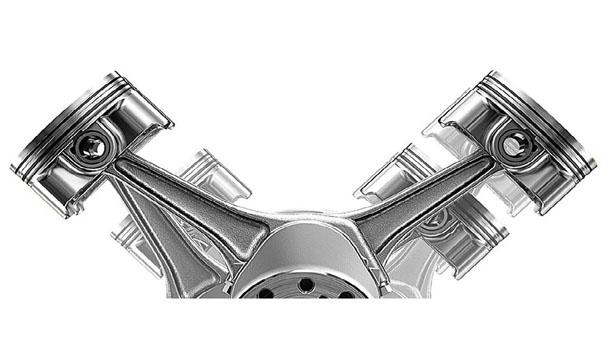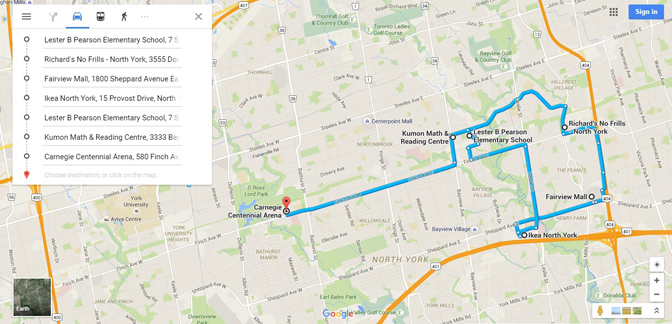
It seems that auto manufacturers are putting a lot of emphasis on everything but the engine these days, with the exception of performance cars. Marketing campaigns for vehicles still appeal to the emotion of driving (freedom, excitement, fun, etc) but specifications touted are usually about the vehicle technology (including safety and entertainment), comfort (from power seats, mirrors, to automatic A/C), and storage or cabin space (how much STUFF we can shove in there, and how many cup holders we can possibly have).
So why does it matter if your engine has 4, 6, or 8 cylinders? Why should you care if the engine has 1.5L, 2.0L, or 3.3L? Why does it matter if your car has 150 horsepower versus 300 horsepower? After all, you’re probably not racing your family vehicle on the track, right? Whether you drive a small car or minivan, the size of your engine really does matter.

Generally-speaking, the more cylinders an engine has the more power it can produce. Most drivers understand that a 6-cylinder engine (aka V6) has more output than a 4-cylinder engine (aka L4). When you have two of the same number of cylinders – let’s say you have two V6 engines, the one with the larger volume will output more power. So if you have two V6 engines, one with 3.3L and another with 5.7L, the latter one will produce more power. Now, before the technicians and engineers jump all over me – power also depends on other factors such as the timing of the valves, where the fuel is injected, temperature, etc. BUT for the sake of simplicity – I’m not getting into all those variables.
We hear many drivers telling us that they don’t really care about the engine, they aren’t going to do much driving, they’re not racing the car, or they just want something to take them from point A to point B. The reality is that you need to factor in your driving style. Here are some scenarios:
If you’ve ever driven an underpowered car on the highway, you will remember what the engine sounds like! It stays at a very high rev (over 3,500 rpm) and it almost feels like the engine is screaming. I know some people who then turn up the radio to mask the engine noise! If you drive a lot on the highway, some of the subcompact cars may not be ideal. The long-term effect of a high-revving engine is increased wear and tear on the engine, as well as increased fuel cost.

Do you drive mostly short distances and within a small radius close to your home? Do you zip from the kids’ school to the grocery store, run a few errands, then back home, over to your kids’ school, then to the extracurricular activities? If you travel short distances but drive a vehicle with a large engine (for example, a 6 or 8 cylinder) you’ll likely use more fuel than if you drove a 4 cylinder engine.

Typically when we ask this question, drivers think about road trip gear, luggage or towing capability. While those are applicable, you’d be surprised how much weight the average person has in their vehicle. Open your trunk and take a look. Some carry golf clubs, sports equipment, household items, etc. Network marketers and salespeople, beware! Quite often your car is loaded with samples, brochures, and promotional items. Often these people drive a vehicle with lots of storage space (perhaps a hatchback or compact SUV) but you also need to look at the engine size. No matter how much storage space your vehicle has, if the engine doesn’t have the power to pull the weight then you’ll have higher fuel and maintenance costs in the long term.

Did you know that vehicles often share the same engine? I’ll give you an example. The 2016 Honda HR-V has the same engine as the 2015 Honda Civic. The HR-V is a larger vehicle compared to the Civic (it’s actually classified as a ‘truck’ on Honda’s website) so a consideration to be made is whether or not the engine will be underpowered in the HR-V. One way to find out is to road test both the Civic and HR-V and see how they perform. Or you’d be wise to road test the HR-V and compare it to the Honda CR-V, which is slightly larger in size but has a more powerful engine. The difference in price may be worth it considering the wear and tear on the engine as well as the fuel cost in the long-run.

If you have a vehicle with an engine that isn’t suitable to your driving style, nothing drastic will happen in the short-term. However, it’s a disadvantage in the long-term. Having a vehicle with an appropriate engine size will save you money in fuel and maintenance costs over the long run!
Engine piston image courtesy of Jaguar Canada.
![]() Want some tips on auto maintenance? Read this to find out the only secret to taking care of your car, and find out when you shouldn't follow manufacturer's maintenance schedule!
Want some tips on auto maintenance? Read this to find out the only secret to taking care of your car, and find out when you shouldn't follow manufacturer's maintenance schedule!